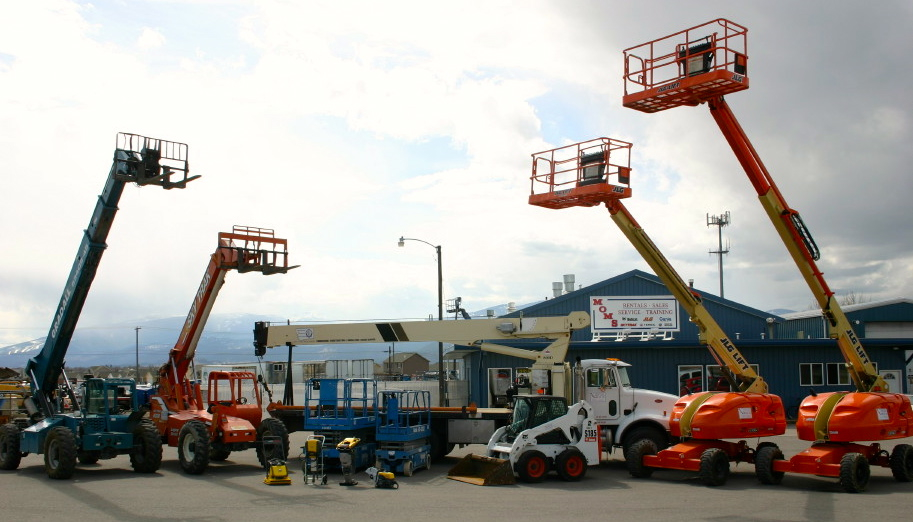Optimize Your Spending Plan by Understanding the Expenses Linked With Building And Construction Tools Services
Comprehending the complete scope of expenses linked with building tools rentals is critical for maximizing your budget plan. What approaches can be employed to successfully take care of these costs and make certain a more reliable rental experience?
Overview of Rental Expenses
When thinking about construction tools leasings, understanding the connected costs is paramount for efficient budgeting and project preparation. Rental expenses can vary significantly based upon a number of factors, consisting of devices type, period of leasing, and location. The initial rental charge typically shows the equipment's market demand and its linked operational capacities, influencing the general expenditure.
Along with the base rental price, supplementary prices may develop, such as transportation charges, gas surcharges, and maintenance costs. It is important to make up these additional costs to properly assess the total expense of leasing tools. Moreover, the rental period can impact pricing; longer services may get reduced prices, while temporary rentals may sustain greater day-to-day charges.

Breakdown of Rental Prices
A thorough understanding of rental prices is important for specialists and task managers aiming to optimize their budget plans. Rental rates for building and construction equipment generally contain numerous parts, including base rates, time-based costs, and usage charges.
Base rates are the core fees connected with the leasing of the equipment, frequently determined by the kind and dimension of the equipment. These rates can differ dramatically, affected by elements such as equipment need, availability, and local market patterns. Time-based charges, which might be daily, weekly, or monthly, offer to fit different job timelines and rental durations.
Furthermore, rental prices may consist of use costs, which are applicable when devices is used past a defined threshold, making sure that the rental company can account for deterioration. Seasonal demand fluctuations can additionally impact rental rates, with peak building and construction seasons normally commanding greater rates.
In addition, comprehending the rental company's plans relating to upkeep and insurance can provide more insight into the total cost structure. By examining these elements, specialists can make enlightened decisions, making certain the choice of rental devices aligns with both task needs and budget plan constraints.
Additional Charges to Consider
Recognizing the complexities of added charges is crucial for specialists to manage their total rental costs effectively. Beyond the typical rental prices, numerous extra charges can substantially impact the overall expense of tools rental. These charges commonly consist of delivery and pickup costs, which can vary based upon range and logistics included in transferring the tools to and from the job website.
Additionally, some rental firms may impose fuel additional charges if the equipment is returned with much less gas than when leased. It is likewise necessary to understand potential cleansing charges, particularly for customized equipment that needs comprehensive upkeep after use.

Thoroughly useful source examining the rental agreement and clearing up these additional costs ahead of time can assist service providers guarantee and prevent unanticipated expenses that budget plans stay intact throughout the job lifecycle.
Maintenance and Fixing Costs
Regular repair and maintenance costs are typically overlooked variables that can substantially affect the general price of building and construction equipment leasings. When renting devices, it is crucial to think about not only the rental charges yet additionally the possible expenses connected with keeping the equipment in ideal operating problem.
Numerous rental firms include standard upkeep as part of the rental arrangement; however, a lot more comprehensive fixings or unexpected malfunctions can result in extra expenditures. It's vital to assess the rental contract thoroughly to comprehend what upkeep solutions are covered and what responsibilities fall on the occupant.
In addition, equipment that is not well-maintained can result in inadequacies at work site, potentially triggering hold-ups and raising job expenses. To minimize these risks, it is recommended to perform normal evaluations and preserve open communication with the rental provider concerning any type of problems that emerge during use.
Insurance Coverage and Responsibility Costs
Insurance coverage and responsibility prices are important parts that additional reading can significantly impact the overall cost of building equipment rentals (dozer rental). These expenses make certain that both the rental firm and the client are secured from potential economic losses occurring from accidents, damage, or theft during the rental duration

Furthermore, clients need to be conscious of any kind of deductibles or exclusions in the insurance plan, as these can influence prospective out-of-pocket expenditures. Comprehending the terms and problems of any type of insurance policy coverage is essential to prevent unanticipated expenses. Inevitably, budgeting for insurance coverage and liability expenditures can assist guarantee a smoother rental experience and safeguard against financial dangers connected with building projects.
Verdict
Finally, a detailed understanding of the costs linked with construction tools leasings is essential for reliable budget administration. By analyzing rental rates, extra fees, upkeep expenditures, and insurance coverage individuals, demands and companies can decrease unforeseen expenses. This strategic method not just enhances cost-effectiveness however additionally guarantees that jobs proceed smoothly and effectively. Eventually, educated decision-making relating to tools leasings adds to the overall success of construction endeavors.
Rental expenses can vary significantly based on numerous aspects, including equipment kind, period of rental, and area (mini excavator rental). The rental period can influence prices; longer leasings might qualify for discounted prices, while short-term services may incur greater daily costs
By carrying out extensive research and involving with credible rental business, contractors can properly navigate the intricacies of rental prices, inevitably maximizing their economic resources.
Past the common rental rates, different additional costs can considerably influence the total expense of equipment leasing. Rental firms commonly provide obligation insurance policy that covers injuries to third events or damage to residential or commercial property, while tools damage insurance coverage can cover the cost of fixings or substitute if the rented out equipment is harmed.